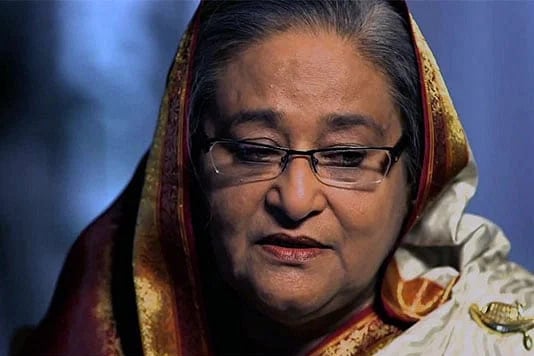POBNEWS24, Desk report Dhaka Dec 28, 2024 : Bangladesh has asked India to return Sheikh Hasina based on the prisoner exchange agreement.
On Monday (December 23), the Foreign Affairs Advisor to the interim government, Md. Touhid Hossain, told reporters at the Foreign Ministry.
Earlier, Home Affairs Advisor Lt. Gen. (retd.) Jahangir Alam Chowdhury had said that a letter has been sent to the Foreign Ministry to return former Prime Minister Sheikh Hasina, who had fled to India.
On January 24, 2013, a draft of the India-Bangladesh prisoner exchange agreement was approved in a meeting of the Indian Union Cabinet. Later, Indian Home Minister Sushil Kumar Shinde visited Dhaka on January 28 of the same year, at which time the prisoner exchange agreement between the two countries was formally signed at the ministerial level.
Immediately after the agreement was signed, India requested the return of Alpha leader Anup Chetia, who was detained in Bangladesh. As a result of that agreement, Bangladesh handed over Anup Chetia to India in 2015.
The main aspect of the agreement is that India and Bangladesh have agreed to extradite persons who are facing cases, charges or are in the process of being convicted.
In the absence of an extradition treaty, it would not have been possible to formally hand over Indian criminals detained in Bangladeshi jails.
However, India had unofficially sent Sheikh Mujibur Rahman’s murderer Risaldar Mosleuddin across the border to Bangladesh. There are also such precedents. Mosleuddin was later hanged in a Bangladeshi jail and executed. Due to the sweet relations with India, many precedents were set during Sheikh Hasina’s time for such border crossings.
Similarly, in 2016, Bangladesh also handed over many separatist leaders from northeastern India to India. Apart from this, Bangladesh was also facing problems due to organizations like Jamaat-ul-Mujahideen Bangladesh (JMB), where their operators were hiding in Indian states like West Bengal and Assam. However, there is no such precedent of India handing over any JMB militant to Bangladesh or crossing the border.
The Indian cabinet also approved a new visa policy with Bangladesh in the same meeting.
As a result of this simplified visa policy, sick people above 65 years and below 12 years, students and businessmen will be able to get ‘on arrival visa’ upon reaching another country. Bangladeshis are already getting this facility.
Bangladesh has sought Sheikh Hasina’s return as a result of this agreement.
On the other hand, on 7 August 2024, Foreign Minister S. Jaishankar confirmed the granting of asylum to Sheikh Hasina in the Lok Sabha, the lower house of the Indian Parliament.
S. Jaishankar told the Lok Sabha that Sheikh Hasina requested permission to enter India at a short notice. She arrived on Monday afternoon, 5 August. Later, Prime Minister Modi held an emergency meeting with the Cabinet Security Committee on the situation in Bangladesh in the presence of Jaishankar and Ajit Doval.
Sheikh Hasina resigned from the post of Prime Minister at around 2:30 pm in the face of mass protests and public anger by students and the public against discrimination.
Sheikh Hasina left the country by helicopter from Ganabhaban to the airport, from there by an Air Force transport aircraft via Agartala to Hindon Air Base in Ghaziabad near Delhi. Her younger sister Sheikh Rehana was with her.
Bangladesh’s Foreign Affairs Advisor Towhid Hossain believes that India is obliged to return Sheikh Hasina as a result of the prisoner exchange agreement. However, former Bangladeshi diplomat M. Humayun Kabir told this Correspondent that, ‘Since Bangladesh has formally sent a letter to return the former Prime Minister, I think India will also respond formally. However, whether India will return it or not is their own matter.’ However, I believe that India can take a legal decision respecting Bangladesh, but the political decision on it will be theirs. Otherwise, diplomatic relations between the two countries will remain strained. This is bad for both.







